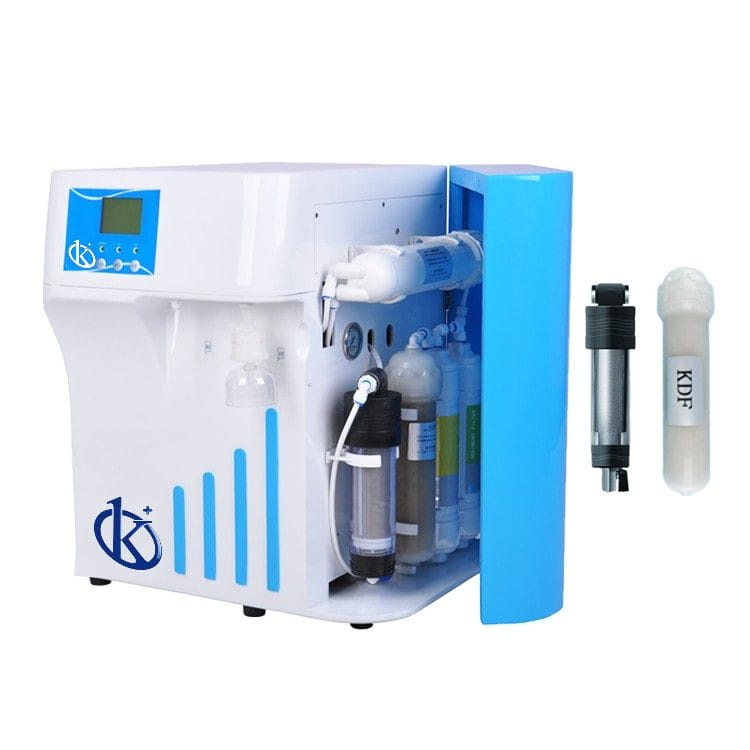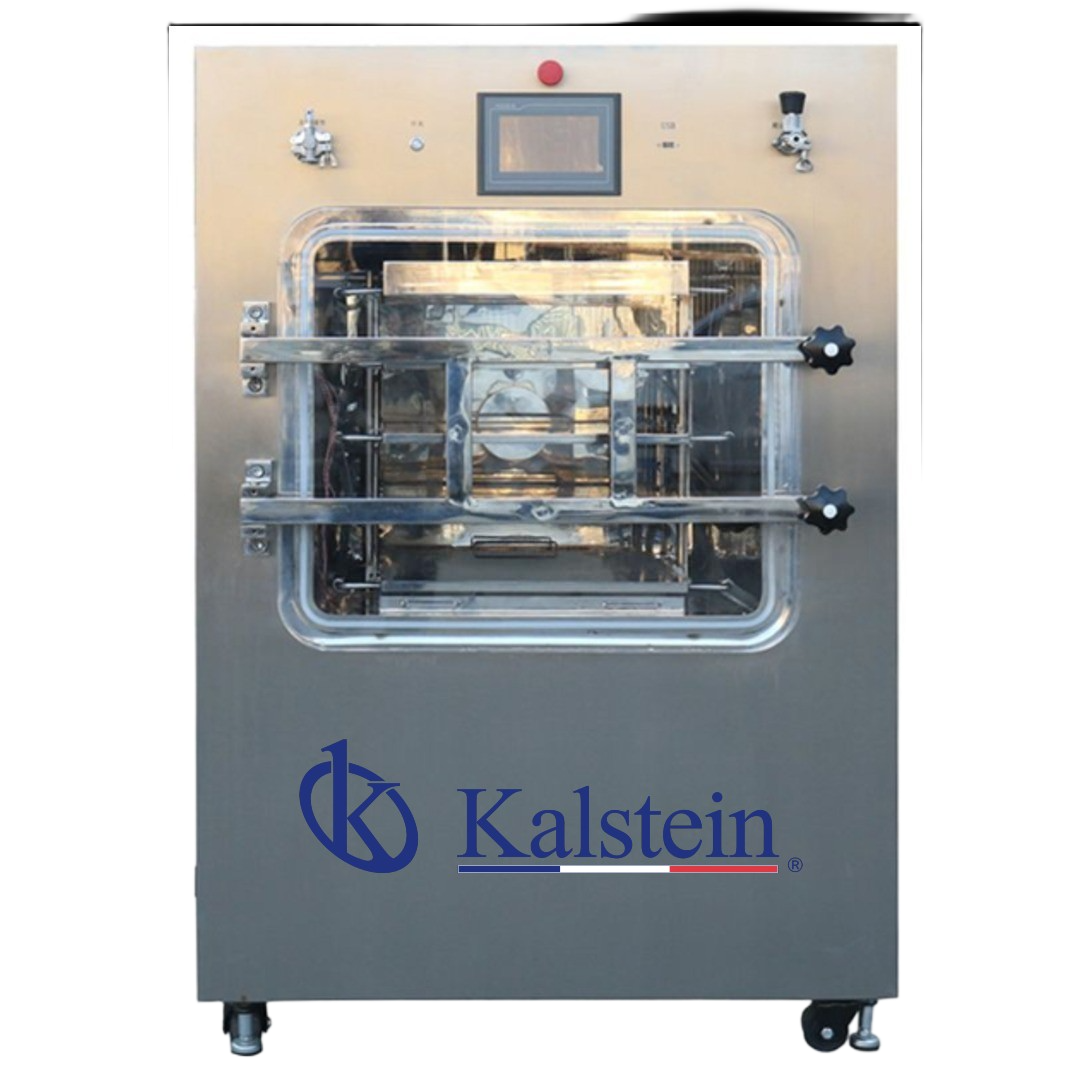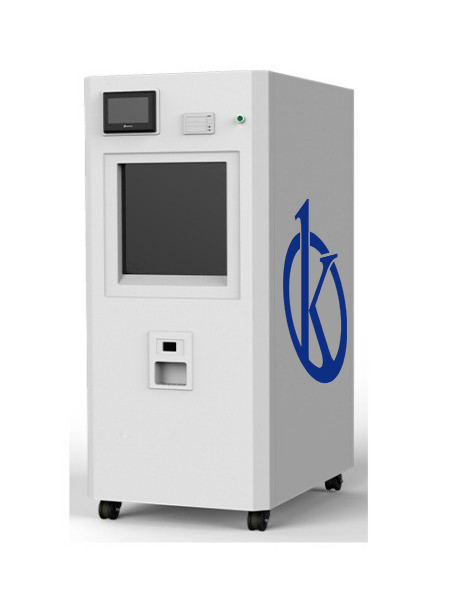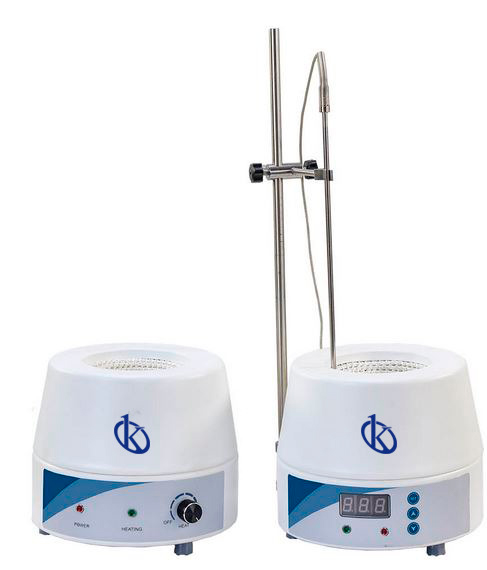In the pursuit of precision and accuracy in laboratory analysis, having a water purification system is essential. In my experience, Water Purification Systems are a key investment to ensure that the results obtained in experiments, research, or diagnostics are reliable.
Let’s explore how these systems can improve the quality of water used in laboratories and how to choose the right one to optimize results.
We understand that you need equipment that provides maximum value to your laboratory. We invite you to visit https://kalstein.co.uk/category-product/laboratory-line/water-systems-laboratory-line/, to immerse yourself in our world of cutting-edge equipment. Our prices are competitive and accessible, combining the convenience of online shopping with the guarantee of an exceptional product. Because you deserve the best, we create and offer high-level laboratory equipment. Make your choice today, where science comes to life. https://kalstein.co.uk/
Water Purification Systems, Kalstein Brand
Water Purification Systems are essential for any laboratory that requires high-purity water. The quality of the water directly impacts the precision of experiments and analyses. In my experience, these systems ensure the removal of contaminants that, if untreated, could alter the results of tests. The main methods used include reverse osmosis, deionization, and activated carbon filtration.
There are several brands on the market offering similar solutions, but there are notable differences in terms of capacity, filtration speed, and achieved purity levels. I’ve tested various systems, and the ones that stand out are those that not only eliminate impurities but also achieve ultrapure water, ideal for applications in biotechnology, analytical chemistry, and medical testing.
Features of Water Purification Systems
Water Purification Systems typically offer different purity levels, from purified water to ultrapure water. The most notable features to consider are:
-
Purification Technology: The best systems incorporate advanced technologies such as reverse osmosis, which allows the removal of up to 99% of dissolved salts and other contaminants.
-
Storage Capacity: It’s important to choose a system with a storage tank that matches the laboratory’s workload.
-
Production Speed: In my experience, having a system that provides fast water purification is essential to avoid delays in analytical processes.
-
Modular Systems: Some brands, such as Kalstein, offer modular solutions that allow the purification system to scale as the laboratory grows or its needs change.
Why Are Water Purification Systems Priced This Way?
The prices of Water Purification Systems vary depending on the technology used, the capacity, and the purity level of the water produced. A high-end reverse osmosis system that offers ultrapure water will be more expensive than a basic filtration system. However, the value of these systems lies in the long-term benefits. It’s not just about the initial investment, but the reduction of costs in reagents or the decrease in errors in analyses due to contaminants.
In my experience, systems from recognized brands like Thermo Fisher, Merck Millipore, and Kalstein may have higher prices, but they also guarantee greater durability, technical support, and consistent quality of the water produced. This factor is key in laboratories that perform complex analyses where an error can mean much higher costs than the price of the equipment.
Compare Water Purification Systems with Similar Products
Over the years, I have been able to test different brands of Water Purification Systems, including Kalstein. While many meet basic requirements, there are some differences worth noting.
-
Merck Millipore: They offer very comprehensive solutions, with reverse osmosis systems achieving high levels of purity. However, their systems tend to be more expensive, and at times, their maintenance can be more complicated.
-
Thermo Fisher: Known for its innovation, Thermo Fisher presents a good variety of water purification options, although its product range may not be as versatile as Kalstein’s.
-
Sigma Aldrich: Also known for its quality, their systems are efficient, but often lack the modular options that brands like Kalstein offer, which can limit customization for smaller laboratories or those with changing needs.
What distinguishes Kalstein, in my experience, is the cost-benefit ratio. They not only offer advanced water purification but also provide a system that is easy to maintain, modular, and scalable, ideal for laboratories of different sizes and needs. In addition, their technical service is accessible and efficient, ensuring that any issues are resolved quickly.
Pros and Cons of Water Purification Systems
|
Pros |
Cons |
|
High precision in purification. |
High initial cost. |
|
Long-term savings on reagents and tests. |
Requires periodic maintenance. |
|
Modular and scalable systems. |
Installation can be complex in some cases. |
|
Advanced reverse osmosis technology. |
Requires space for storage tank. |
|
Easy integration into laboratories of different sizes. |
|
|
Reduction of analytical errors. |
|
|
Greater durability of equipment. |
|
|
Accessible and efficient technical service. |
Advantages of These Water Purification Systems
Water Purification Systems offer several advantages that make them indispensable for modern laboratories. One of the most notable is their ability to provide ultrapure water, eliminating even the smallest traces of contaminants. This is vital for high-precision analyses, as any impurity could significantly alter the results.
Additionally, their advanced technology allows for easy adaptation to different types of laboratories, whether they need water for standard applications or ultrapure-grade applications. The systems are modular, meaning they can grow with the laboratory’s needs, something not all brands offer.
Other Benefits of These Water Purification Systems
One of the additional benefits of these systems is their ability to reduce long-term operational costs. In my experience, laboratories that use high-quality purified water can decrease the use of reagents and chemicals, which represents significant savings.
Another advantage is the ease of maintenance and operation. Although some systems may seem complicated at first, many offer intuitive interfaces and require basic maintenance, such as changing filters, which can be done without the need for specialized technicians.
User Reviews of Water Purification Systems
Other users’ opinions agree that high-quality Water Purification Systems, such as those from Kalstein, have significantly improved the accuracy of their experiments and processes. I’ve spoken with colleagues who emphasize the durability of these systems and how their installation has optimized analysis times, reducing the possibility of errors due to contaminants.
FAQs about Water Purification Systems
What level of purity can be achieved with these systems?
Water Purification Systems can achieve purity levels that remove up to 99.9% of impurities, providing ultrapure water suitable for demanding laboratory applications.
Is the maintenance of these systems easy?
Yes, many of these systems, including those from Kalstein, are designed for easy maintenance. Filter replacement is one of the most common tasks and can be performed without the need for specialized technicians.
How much space is needed to install one of these systems?
Most Water Purification Systems require additional space for the storage tank, but some models are more compact and suitable for laboratories with limited space.
How do these systems affect long-term costs?
Although the initial investment can be high, long-term operating costs are reduced due to the lower need for reagents and a decrease in analysis errors.
Can these systems be adjusted according to the laboratory’s needs?
Yes, many systems, such as those from Kalstein, are modular and scalable, allowing them to be adapted to a laboratory’s growing demands.
What warranty do these systems offer?
Depending on the brand, the warranty can vary, but generally, trusted brands like Kalstein offer extended warranties and post-sale technical support.
Conclusions on These Water Purification Systems
Water Purification Systems are a fundamental investment for any laboratory seeking to improve the precision and reliability of their analyses. Throughout my experience, I have seen how these systems not only guarantee more accurate results but also optimize processes and reduce long-term costs.
Brands like Kalstein offer excellent value for money, standing out for their advanced technology and ease of use. Without a doubt, they are a recommended option for laboratories of any size.




